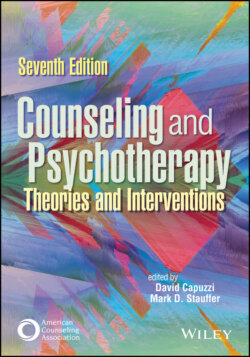Читать книгу Counseling and Psychotherapy - Группа авторов - Страница 66
Cultural Humility Along With Cultural Competence
ОглавлениеCultural competency provides a baseline for developing awareness, skills, and knowledge necessary for counseling diverse clients. However, without moving toward or embodying cultural humility in relationships, counselors run the risk of becoming overconfident in knowledge and inadvertently relating to clients in rigid, monolithic ways. Cultural humility is “the ability to maintain an interpersonal stance that is other-oriented (or open to the other) with an aspect of cultural identity that is most important to the client” (Hook et al., 2017, p. 354). Having cultural humility means the counselor engages in a continuous process of learning in and out of session. Multicultural orientations require counselors and therapists to commit to a continuous process of developing cultural competency and cultural humility and then implementing these efforts into practice (Gundel et al., 2020). In addition to competence and humility, acting from a culturally responsive place must also be intentional. Simply put, without intentional effort of action and interaction, the other training falls short. As a counselor, this means actions on various levels, such as the personal, interpersonal, community, institutional, public policy, and international/global levels (Singh, Appling, & Trepal, 2020). It also relates to the counselors’ responsibility to change their way of working within the field of counseling, for example, in the counseling clinic, in the university, in ethical standards, in accreditation by the Council for Accreditation of Counseling and Related Educational Programs, and in counselor education.
Multicultural orientations within action reinforce that counselors must not use therapies and therapeutic interventions that are culturally inappropriate but rather use therapies that are affective, affirming, and not harmful. Use of the skill sets, assessment instruments, diagnostic criteria, and approaches to case conceptualization connected with the way counselors work with clients in the United States, for example, would need to be modified. Theories as well as their use need to be modified or adapted. Traditional healing practices can and should be integrated into work with the client even if not delivered by the counselor. For this reason, we include a section on integrating multicultural orientations with theory and discuss therapies that align with multicultural and social justice theories. Importantly, theories not covered in detail here, such as critical race theory, intersectionality theory, and liberation theory, are not counseling theories in and of themselves but are important theories for counselors and counselor educators to inform culturally competent and responsive practice (Singh, Appling, & Trepal, 2020).
